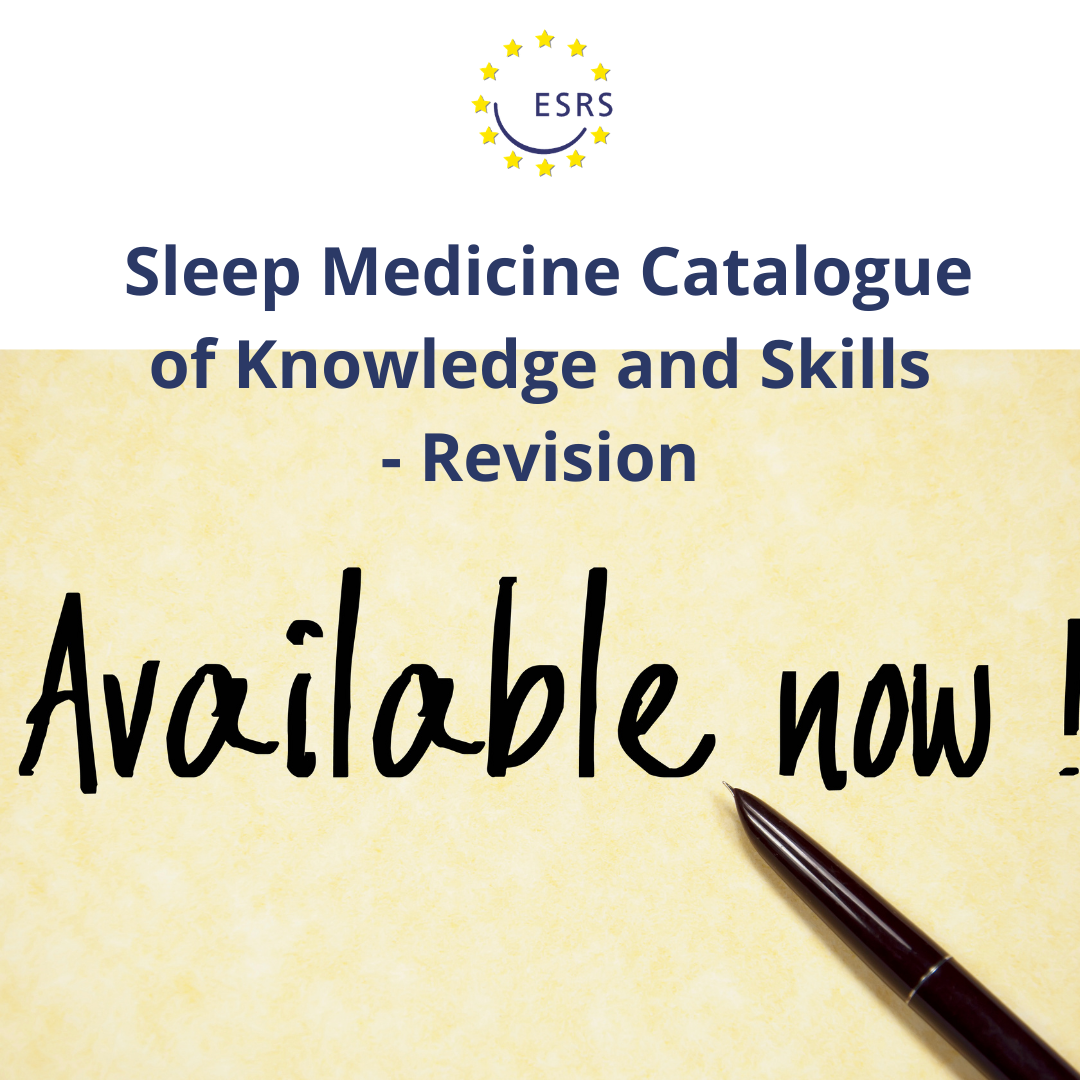Revised Catalogue of Knowledge and Skills
Since the Catalogue of Knowledge and Skills was first published in the JSR in 2014, the field of sleep medicine has evolved greatly. The influence that sleep medicine has on other medical disciplines is evident, as the desire for physicians to remain in their field, but also to expand their knowledge and understanding of sleep medicine and sleep research in relation to their specialty, has increased.
Under the leadership of Prof. Dr. Thomas Penzel, a total of nineteen authors contributed to this revision, which takes into consideration the interdisciplinary nature of sleep medicine, and also, the changes in the International Classification of Sleep Disorders, updates in the manual for scoring sleep and associated events and new knowledge in sleep physiology and pathophysiology.
Quoting Prof. Dr. Penzel,
“The revision of the Catalogue of Knowledge and Skills took a long time and was the result of several meetings. It is an expansion of the Catalogue of Knowledge and Skills as published in 2014. The Catalogue provides the layout for the textbook on sleep medicine and for the curriculum of courses and for the examination to become an ESRS somnologist. The highlight is the Catalogue itself, which reflects the table of contents for the textbook.
Readers can glean from it, that we observe a paradigm shift in sleep medicine, from a new small interdisciplinary field, now back to become important for the traditional large areas of medicine like pneumology, cardiology, neurology, psychiatry, otolaryngology and paediatrics. The large author team was necessary in order not to miss important areas of sleep medicine and the potential impact on the other fields of medicine.”
Implications of the revision
Just as the original publication was used as a basis for the first textbook, this is also the case with this Revised Catalogue.
The new textbook has been restructured to reflect at first, sleep medicine: the core sleep physiology, methodology and disorders, and is then followed by a new section which gives the perspective of the varying disciplines on patients with sleep disorders.
Numerous updates and changes have been made to several chapters, and a number of new chapters have been included. The Sleep Medicine Textbook 2nd Ed. now consists of 92 chapters (1000 plus pages). It will be available in Summer 2021 and is the required reading material for the examinations, which are expected to be held towards the end of 2021.
Here is Prof. Dr. Penzel’s introduction to the Revised Catalogue of Knowledge and Skills. But be on the look out – in the coming weeks, we’ll be speaking first-hand to several of the contributing authors and sharing those interviews with you.
Here is the entire publication for more details on the Revised Catalogue of Knowledge and Skills.
Reminders
RNC Call for New Effective Members
Are you interested in stepping up your contribution to the work of ESRS? The Research Network Committee (RNC) has just launched its Call for New Effective Members. They’re seeking a Project Manager to investigate the possibilities and eventually set up an ESRS Foundation, in line with their mission to promote collaborations and information exchange between different fields within sleep research.
Applications will be accepted until 30-June. Here’s more information on the project and how to apply.
Recent publications from ESRS members
- Castelnovo et al. (2021). Frequent, complex and vivid dream-like/hallucinatory experiences during NREM sleep parasomnia episodes. Sleep Med.
- Del Gallo et al. (2021). Sleep inhibition induced by amyloid-β oligomers is mediated by the cellular prion protein. J Sleep Res.
- Feige et al. (2021). Event-related potentials in insomnia reflect altered perception of sleep. Sleep.
- Öztürk et al. (2021). Possums-based parental education for infant sleep: cued care resulting in sustained breastfeeding. Eur J Pediatr.
- Christensen et al. (2021). Nocturnal eye movements in patients with idiopathic rapid eye movement sleep behaviour disorder and patients with Parkinson’s disease. J Sleep Res.
- Sarasso et al. (2021). Thalamic and neocortical differences in the relationship between the time course of delta and sigma power during NREM sleep in humans. J Sleep Res.
- Cordi & Rasch (2021). Systematic decrease of slow-wave sleep after a guided imagery designed to deepen sleep in low hypnotizable subjects. J Sleep Res.



